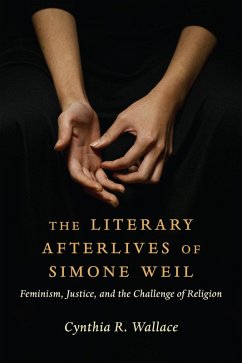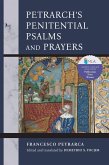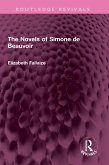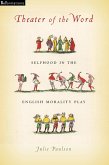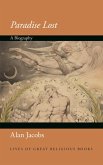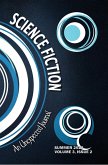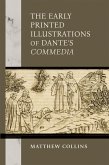The French philosopher-mystic-activist Simone Weil (1909-1943) has drawn both passionate admiration and scornful dismissal since her early death and the posthumous publication of her writings. She has also provoked an extraordinary range of literary writing focused on not only her ideas but also her person: novels, nonfiction, and especially poetry. Given the challenges of Weil's ethic of self-emptying attention, what accounts for her appeal, especially among women writers?
This book tells the story of some of Weil's most dedicated-and at points surprising-literary conversation partners, exploring why writers with varied political and religious commitments have found her thought and life so resonant. Cynthia R. Wallace considers authors who have devoted decades of attention to Weil, such as Adrienne Rich, Annie Dillard, and Mary Gordon, and who have written poetic sequences or book-length verse biographies of Weil, including Maggie Helwig, Stephanie Strickland, Kate Daniels, Sarah Klassen, Anne Carson, and Lorri Neilsen Glenn. She illuminates how writing to, of, and in the tradition of Weil has helped these writers grapple with the linked harms and possibilities of religious belief, self-giving attention, and the kind of moral seriousness required by the ethical and political crises of late modernity. The first book to trace Weil's influence on Anglophone literature, The Literary Afterlives of Simone Weil provides new ways to understand Weil's legacy and why her provocative wisdom continues to challenge and inspire writers and readers.
This book tells the story of some of Weil's most dedicated-and at points surprising-literary conversation partners, exploring why writers with varied political and religious commitments have found her thought and life so resonant. Cynthia R. Wallace considers authors who have devoted decades of attention to Weil, such as Adrienne Rich, Annie Dillard, and Mary Gordon, and who have written poetic sequences or book-length verse biographies of Weil, including Maggie Helwig, Stephanie Strickland, Kate Daniels, Sarah Klassen, Anne Carson, and Lorri Neilsen Glenn. She illuminates how writing to, of, and in the tradition of Weil has helped these writers grapple with the linked harms and possibilities of religious belief, self-giving attention, and the kind of moral seriousness required by the ethical and political crises of late modernity. The first book to trace Weil's influence on Anglophone literature, The Literary Afterlives of Simone Weil provides new ways to understand Weil's legacy and why her provocative wisdom continues to challenge and inspire writers and readers.
Dieser Download kann aus rechtlichen Gründen nur mit Rechnungsadresse in A, D ausgeliefert werden.

